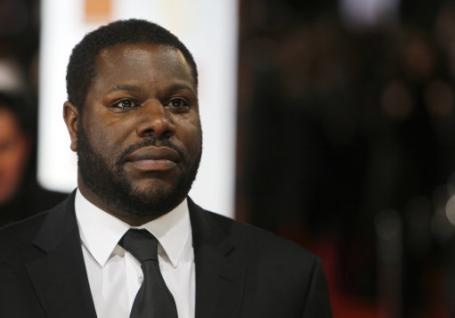By Patrick Vernon Follow @ppvernon
CARICOM, an organisation representing fifteen Caribbean countries, is in the process of taking legal action against the UK, France, Spain, Portugal, the Netherlands, Norway, Sweden and Denmark in pursuit of reparation for the enduring suffering caused by the Atlantic slave trade.

A ten point plan which will form the basis of the international lawsuit has been drawn up by Professor Sir Hilary Beckles, an academic and historian whose great-great-grandparents were slaves on the Barbados plantation owned by ancestors of the actor Benedict Cumberbatch. Leigh Day Solicitors, who were successful in their legal action against the UK government on behalf of 5000 Mau Mau interned and tortured in Kenya during the fifties, are advising the Caribbean governments. The nations request formal apology as well as resources to cover issues around health, education, economic development and cultural heritage. Although CARICOM should be commended for these steps, the action fails to recognise Caribbean diaspora experience in the UK and the rest of Europe.
In the UK these discourses may be greeted with a degree of scepticism and criticism of ‘political correctness gone mad’. Media, politicians and the public often perceive the idea of reparation or restorative justice as unreasonable considering the offending actions are not a feature of modern Britain. However, if you look at family genealogies in the UK there remains a strong shared and collective history of slavery and colonisation of black ancestors by white ancestors.

The ‘Legacies of British Slave-Ownership’ project run by academics at University College London provides details of the £20 million (equivalent to £1 billion today) paid to slave owners. The records hold details of over 3,000 absentee plantation owners along with 46,000 claims for compensation. The research project has identified beneficiaries such a as the family of David Cameron, former minister Douglas Hogg, as well as authors Graham Greene and George Orwell.
I have traced my family history from Wolverhampton, Jamaica and Senegal using records, oral history and DNA testing. The main focus has been on my mother’s side of the family, the Shirleys, from the Jamaican parishes of St James and Portland.
I found details of a Henry Shirley who ran a number of plantations, including Hyde Hall and St Petersfield.

Shirley had a relationship with Sally Skiers, a mulatto woman, and fathered a son called Edmund. In many ways, Skiers is a mother to the entire black Shirley population of Jamaica and North America. The UCL database provides details of £1,286 in compensation which Shirley received for sixty-four enslaved Africans, thereafter trusted to his nephew Bernard Shirley. The compensation and the subsequent assets from plantation income went to the white side of the Shirley family in Jamaica and England. Edmund Shirley received £100 when his father passed away in 1858.
Many of us as Black Britons are not looking for any formal financial compensation. What we want is honest and open debate about the horrors and consequences of enslavement and acknowledgement of how it has shaped modern Britain.
The trauma of enslavement is still ever present within the subconscious of both black and white people 400 years later. It is reinforced by everyday racism and the consequences of government policy and globalisation. It would be of great benefit to have a Royal Commission similar to that which was established by David Cameron in February 2014 to examine the impact of the Holocaust. Such a body would report to Parliament and look at the legacy of enslavement in society today across a number of policy areas.
Opening the family ‘Pandora’s Box’ might cause the skeletons of the past to come haunt us. Perhaps for the majority of us it is easier to mythologise our African and Caribbean identities and not to explore, in detail, our personal family histories. White families who benefitted from the slave trade may prefer not to know, or disguise or hide where their wealth has come from.

Despite this, family history is an important part of the healing process. It enables us to move forward by recognising the achievements and challenges of the past.
We need to reclaim our family histories and unpack personal and national narratives to achieve equality for all. Only in this way can we recognise the lasting legacies of those who ‘endured slavery’, for which no amount of financial compensation can ever make amends.
Taking my lead from CARICOM, below I have detailed what reparations for Black Britons might look like.
• Formal apology for slavery as well as current abuse of state powers around stop and search, school exclusion, sectioning under the Mental Health Act since the 1950s
• Free genealogy DNA tests along with regular updates over a 5-10 year period for X, Y and Admixture chromosome (including any new products on the market) to ascertain family history
• Genetic counselling and support in understanding the results of DNA tests and their implications
• Further research on enslavement and health inequalities around dementia, diabetes, mental health, cancer, fibroids, sickle cell and other hereditary diseases
• Subsidised access to existing websites and online resources which charge a subscription for slave, passenger ship and other key records
• Free support and equipment to digitise personal family history documentation
• Free copies of publications, maps, documents and photographic/audio material to support individual family history research
• Development of a free online community led ancestral database and forum to support individuals and communities to share their family research and experiences around enslavement
• Support and encouragement of meetings around reconciliation and dialogue with descendants of the beneficiaries of slavery and of enslaved families
• Free access to family historians and genealogists to support individual and family history research
• Free access to trauma counselling support services which are culturally accessible and specific to the heritage of African and Caribbean communities
• Development of a workforce and leadership training programme in the NHS, local government, arm-length bodies and third sector around peer support, talking therapies and commissioning holistic metal health services
• Development of family support and resilience programme to break the cycle of knife and gun crime
• Development of a culturally relevant Friends and Family Test for the community to assess the performance and delivery of public funded health and social care services
• Review of the Public Sector Equality Duty to provide specific provision on challenging discrimination against of people of African descent
• Equality and Human Rights Commission establishment of a race equality statutory committee with an Independent chair to monitor, review public and private sector services and policies which have a detrimental impact on the black community
• Funding bursaries to individuals and family members to travel to key locations in the Caribbean, African, North America, Asia, Middle East and Europe as part of a process of healing and remembrance
• Development of a research and academic fund to support more black academics and think tanks in developing research and social policy around mental health and health inequalities
• Establishment of an Emancipation Fund to support events, monuments and activities around Emancipation Day, Windrush Day and Black/African History Month
• Review and reclassification of the current clinical manuals around diagnosis of different forms of mental illness where people of African descent are over diagnosed
• Development of cultural specific support and counselling services for children and young people
All work published on Media Diversified is the intellectual property of its writers. Please do not reproduce, republish or repost any content from this site without express written permission from Media Diversified. For further information, please see our reposting guidelines.
Patrick Vernon OBE is a leading expert on African and Caribbean genealogy in the UK. Founder of Every Generation Media and 100 Great Black Britons Patrick was selected by the Queen as Pioneer of the Nation for Cultural History in 2003. He has researched family history and Swahili culture in East Africa and Oman as a Clore Fellow and has advised the BBC, The National Archives, The National Trust, Royal Geographic Society, Victoria & Albert Museum and the British Council. In 2012 he was awarded an OBE for his work tackling health inequalities for ethnic minority communities in Britain. Having worked for the Department of Health, NHS and the voluntary sector Patrick is an Associate Fellow at the Department of the History of Medicine at Warwick University, England. See his website www.patrickvernon.org.uk or find him on Twitter @ppvernon
If you enjoyed reading this article, help us continue to provide more! Media Diversified is 100% reader-funded – you can subscribe for as little as £5 per month here
Related articles
- Caribbean nations agree to seek slavery reparations (Reuters)
George Orwell Family among 3000 slave-owners who received compensation (BBC News)
The Mau Mau claims (Leighday.co.uk)

I only found out about this site as I found a post on my company site from Ms Tuitt dated some months ago when she was claiming discrimination against her by Bangladeshis in Tower Hamlets when she was deselected as a councillor.
There is one massive difference between the Jewish and African Caribbean communities in respect to reparations. The Jews didn’t enslave and sell their own people the Africans did. What is conveniently ignored by people like the writer of this article is that the slave trade could not have happened without the active cooperation of African rulers all down the West coast of Africa.
This is well known and well documented and of course widely ignored by people like the writer of this article. Slaves were better off than the white working class of this country as they had to be fed and looked after, my ancestors had to do themselves. Do what the Irish and the Asians do and are doing, stop moaning and get on with it.
LikeLike
v little coverage about this
LikeLike
That is very interesting, given that reparations are not often considered beyond three generations (e.g., Jews/Nazis) Sir Hilary Beckles, Professor should be fine, as his a third generation. However from my reading of cases brought by other survivors to the international courts they dont seem to support survivors after three generations.
I will follow the case with interest. Whilst I still continue with the daily struggle as a person of colour..
LikeLike